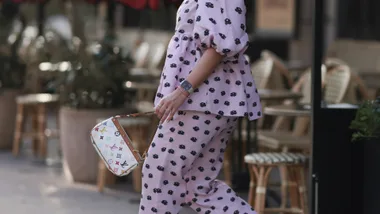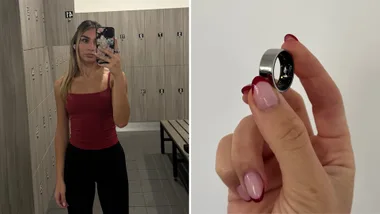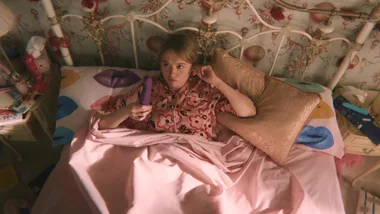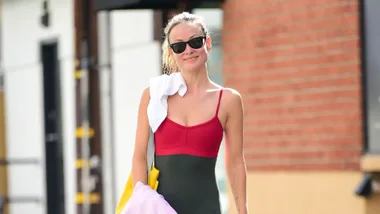Alanis Morissette grew up dreaming of being a mother, but what she didn’t expect was the devastating postpartum depression she suffered after the births of both her children.
“There are days I’m debilitated to the point where I can barely move,” the singer — who’s still struggling with the illness 14 months after welcoming daughter Onyx Solace — tells PEOPLE exclusively in the latest issue. “As a kid, I imagined having children and being with an amazing partner. This is a whole other wrench I didn’t anticipate.”
The Grammy winner, 43, had her first experience with PPD after giving birth to her now-6½-year-old son Ever Imre. She immediately began feeling symptoms of the disorder, including intense physical pain, insomnia, lethargy and “horrifyingly scary” visions of her family being harmed, and wasn’t diagnosed until 16 months later.
This time, she was prepared for the depression to return — and indeed, her PPD set back in “seconds later” after she gave birth to Onyx last June.
“It’s very isolating,” she says. “I’m used to being the Rock of Gibraltar, providing, protecting and maneuvering. It had me question everything. I’ve known myself to be a really incredible decision-maker and a leader that people can rely on. [Now] I can barely decide what to eat for dinner.”
The Jagged Little Pill songstress — whose PPD is “four times worse” this time — is currently on a combination of medication and homeopathic therapies, exercising daily, working with therapists and channeling her struggles into music. “I wrote many, many songs over the last three months,” she says. “It was a song a day. I had to start writing songs, or I was going to implode.”
While she tries to protect her children from PPD “because I don’t want it to be their burden,” her 7-year marriage to Mario “Souleye” Treadway has been challenged because of the illness.
“My main priority is that I want to make sure both of my children are loved and bonded with and provided for,” she says. “Poor Souleye sometimes gets the dregs of my exhaustion at the end of the night. Even holding hands at this point is a deeply intimate experience.”
The rapper, 37, has tried to be as supportive as possible, however, and the couple continue to find ways to bond — like watching Games of Thrones together.
“I set him up to win as often as I can,” says Morissette, who’s continued creating content for her podcast. “He’s doing the best he can. I just basically say to him, ‘There’s an end to this, and I’m in the middle of it. I’m so sorry for not being able to be who you typically know me to be.’ ”
The musician also refuses to stay silent about her postpartum depression. “The stigma remains in a really big way,” she says. “There’s this version of eye contact that I have with women who have been through postpartum depression where it’s this silent, ‘Oh my God, I love you. I’m so sorry.’ ”
Most of all, Morissette is looking forward to feeling like herself again.
“There are people who are like, ‘Where’s the old Alanis?’ and I just think, ‘Well, she’s in here. She’s having a minute,’ ” says the singer. “I just know that there’s a light at the end of the tunnel and try not to beat myself up.”
For resources on postpartum depression, Morissette recommends visiting the Postpartum Stress Center, Vantage Point Behavioral Health & Trauma Healing and Somatic Experiencing Trauma Institute for more information. She also suggests reading This Isn’t What I Expected: Overcoming Postpartum Depression by Karen Kleiman and Valerie Raskin and The Postpartum Husband: Practical Solutions for Living with Postpartum Depression by Karen Kleiman.
This article originally appeared on people.com
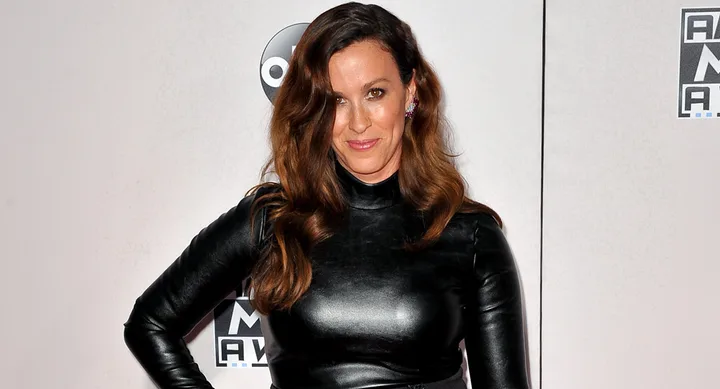 Getty
Getty

